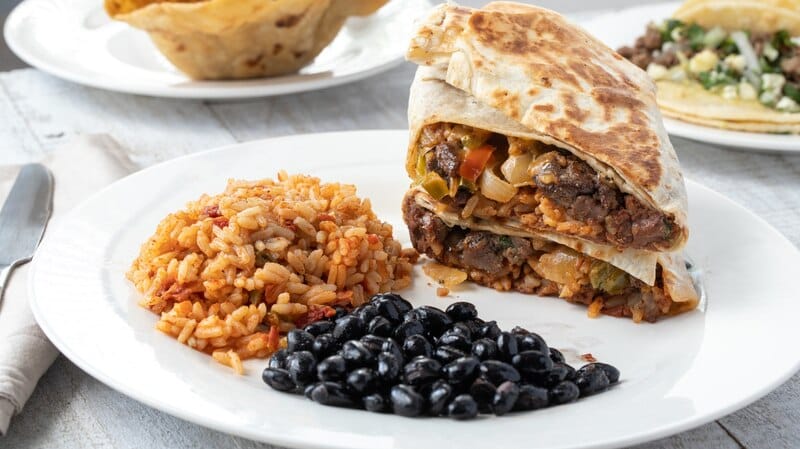Some schools in the UK have found that growing their own food in kitchen gardens is more cost-effective than hiring caterers.
Some schools in the UK are resorting to extreme methods to continue providing children with nutritional meals despite the recent surge in prices.
According to Supply Management, several educational institutions have begun cultivating their own vegetable gardens as a means of compensating for reduced catering contracts. Some establishments are cutting back on the number of meat-based dishes they provide while others are sourcing all of their components from regional vendors.
The reduction of meat in schools comes at a time when one-third of customers in the UK are also reducing their consumption of animal protein due to rising prices.
Why are schools starting their own gardens to raise their own vegetables?
The enhanced cognitive development that results from gardening is an added benefit of growing your own vegetables, which also provides access to healthy, whole meals. But the schools that are making the changeover to this system are doing so for a variety of worrisome reasons.
Several factors, including the Russian invasion of Ukraine, general increases in commodity prices, labor shortages, and increases in energy prices, have had an effect on the provision of school meals.
Rob Percival, head of food policy at the food charity the Soil Association, said in a statement that “school caterers have been warning for years of a rising crisis and now, predictably, it has come to a climax.”
He continued by saying, “The pledge of the government to provide an additional seven pence per infant meal is great, but when you consider that caterers have suffered years of underfunding on top of the present levels of inflation, this is completely inadequate.”
A survey conducted by the Soil Association found that 55.3% of educational institutions were unable to successfully renegotiate their catering contracts. This is a direct outcome of constantly rising prices.
To put this into perspective, the price of essential commodities like wheat flour and palm oil has risen by 72.3% and 49.4% respectively over the past year.
How are food standards at risk?
Even while some schools are looking into growing their own produce, there is a concern that there will be a return to an increased reliance on processed meals.
According to the findings of a poll conducted by the Soil Association, over half of the schools (46.8 percent) are concerned about the potential health benefits of the meals that are supplied. In addition to this, it was discovered that 12.8% of people had already started lowering their previous nutritional criteria.
Jamie Oliver, a famous British chef, initiated his “Feed Me Better” initiative in the year 2005. It engaged in lobbying efforts with the government to enhance school food standards and remove items that were highly processed from the menu. Instead, the request was for dishes that were well balanced nutritionally and were prepared freshly.
The petition that Oliver created received close to 272,000 signatures. In due course, the government of England committed 280 million pounds to the endeavor of modernizing the school lunch program.
Oliver has continued his advocacy despite the absence of discernible progress, and he is now doing it under the banner of the “Food Revolution.” He hopes that by the year 2030, the rate of childhood obesity in the UK would be cut in half.
Failing the children’s essential dietary requirements
Despite the overwhelming support for healthier school meals, new research carried out by Imperial College London indicated that nearly two-thirds (64 percent) of all menu options are ultra-processed foods.
According to a poll conducted by the Soil Association, 6.4% of educational institutions have already increased the percentage of such foods that they serve.
A significant number of them contain low-quality cuts of meat and are associated with an increased probability of acquiring type 2 diabetes and coronary disease.
“Ultra-processed foods are typically cheap, readily available, and heavily advertised – often as healthy options,” Dr. Jennie Parnham, the study’s principal author, said in a statement. Parnham is also the person who conducted the research. “However, these foods are also generally higher in salt, fat, sugar, and other additives, and they are linked with a range of poor health outcomes. Because of this, people must be aware of the health risks that are associated with children consuming them at high levels while they are at school.”
She proceeded by saying, “As food prices continue to rise in the UK and around the world, gaining access to food that is both affordable and nutritious will become increasingly difficult for a great number of people.” The meals served in schools should provide students of all socioeconomic classes with access to nutritious food that has been minimally processed, but instead, they are falling short of their potential.
What options do we have?
Around the world, projects to serve school meals that are based on plants are sprouting up to enhance the health of children.
The concept of “Vegan Fridays” was introduced earlier this year by New York City Mayor Eric Adams. Students in grades K-12 receive one meal per week that is entirely plant-based through this initiative, intending to reduce the prevalence of childhood obesity.
In a similar vein, Mexico has been working closely with Mercy For Animals to gradually expand the number of vegan meals that are provided in school cafeterias.








